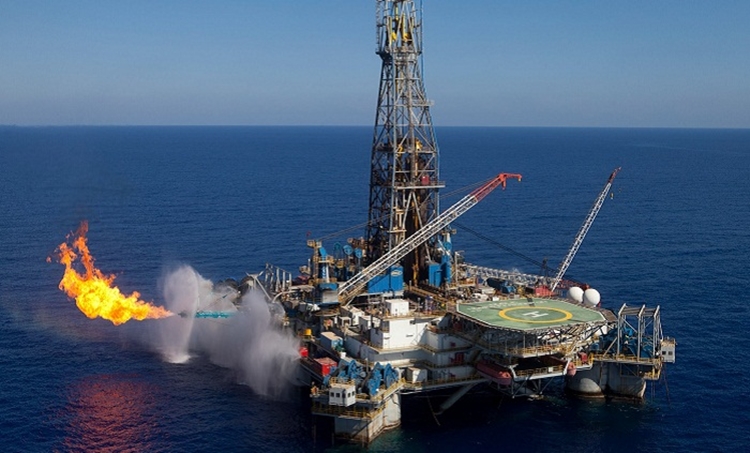SAM
Published:2019-11-24 03:15:17 BdST
Oil companies leaving Bay despite attractive offers
FT ONLINE
Within the span of a few months, two out of four international oil companies working in the Bay of Bengal have informed the government that they will discontinue their operations.
The decision came to the government as a surprise as the oil companies are working under production sharing contracts (PSCs) that offer good incentives.
The Australian company Santos Limited, which is exploring the shallow water block SS-11, in June expressed its unwillingness to continue working in the Bay. The company had signed a contract in 2014.
Santos conducted 3,050 line kilometres of a two-dimensional survey in 2015 and 305 line kilometres of a three-dimensional seismic survey in May 2017. It was expected that the company would drill one exploratory well in that block by March 2021.
On November 13, the Korean company Posco International Corporation, working in deep-sea block DS-12, sent a note to the Ministry of Power, Energy and Mineral Resources expressing its plans to exit Bangladesh.
DS-12 is situated close to a Myanmar deep-sea block, which is considered to have good potential. Posco believes there might be a big gas reserve there. The Myanmar side of the block has been producing gas since 2013.
Posco signed its PSC in March 2017.
The two other companies – ONGC Videsh Limited and Oil India Limited – are both Indian. They were awarded two shallow-water blocks, Bapex being their partner.
ONGC and Oil India are operating in blocks SS-04 and SS-09. They completed 5,528 line kilometres of a two-dimensional survey in the blocks. They are expected to drill two exploratory wells in the blocks by early 2021.
Following the resolution of the maritime boundary dispute with Myanmar in 2012, Petrobangla awarded the DS-12 block along with two other deep-sea blocks – DS-16 and DS-21 – to a joint venture of American ConocoPhillips and Norwegian Equinor ASA (formerly Statoil).
ConocoPhillips pinpointed a large prospective field in the blocks but later left the country due to poor financial terms in the PSC.
Why Posco is leaving
Sources have said Posco has carried out a two-dimensional seismic survey in 3,480 line kilometres of the area covered, which is double its committed area for the survey.
"The company detected around half a dozen potential spots for hydrocarbon reserves following the 2D survey," said a senior Petrobangla official.
Posco had also been looking for a partner to drill an exploratory well in the block but could not find any.
While officials could not say exactly why Posco was leaving, a Petrobangla official said the latest PSC offers better deals than the one signed by Posco.
This might be a reason for the company's exit, he said.
Posco's PSC offers the company around $6.5 per mmBtu (metric million British thermal unit) with a 2 percent annual price increase from the date of first gas production.
But under the new PSC, gas prices have been set at around $7.26 per mmBtu, with a 1.5 percent annual price increase from the date of first gas production.
Besides, the revised PSC ensures gas export facilities to a third party and pipeline tariff to international oil companies.
However, without Posco explaining the real reason, its exit remains a mystery.
Meanwhile, experts are trying to understand why the ConocoPhillips and Equinor ASA joint venture made its exit from the country even though the PSC it was working under was attractive.
One likely reason is the drop in global energy prices. Another could be the lack of seismic data in the Bay of Bengal.
"Oil companies are not interested in our Bay that much because we lack a proper database. The sea is an unknown area. We need data to attract them," said Dr Badrul Imam, supernumerary professor at the Department of Geology of Dhaka University.
"The government should go for a multi-client survey of the Bay," he added.
Why energy exploration is important
The country's total gas demand is almost 4,200mmcf (million cubic feet) per day whereas supply is only 3,000 mmcf, including imported Liquefied Natural Gas (LNG).
Bangladesh has been trying to promote gas exploration in the Bay of Bengal to help meet its soaring energy demand. At the same time, the government began importing LNG from the Middle East.
At present, Petrobangla has two Floating Storage Regasification Units at Moheshkhali in Cox's Bazar. The authorities are planning to set up another land-based LNG storage facility in the area.
Unauthorized use or reproduction of The Finance Today content for commercial purposes is strictly prohibited.


